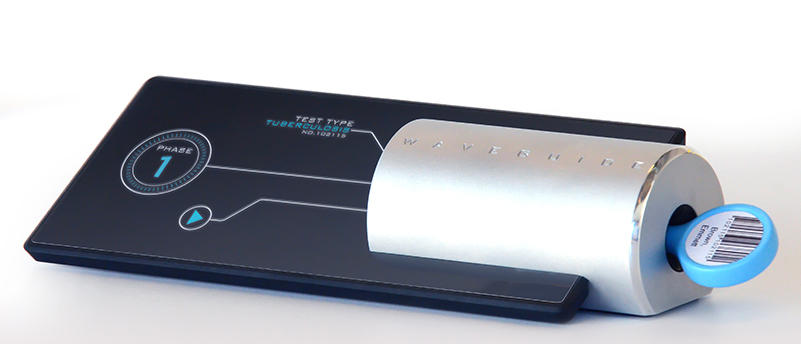Product design and development firm Cambridge Consultants is working with medical device start-up WaveGuide Corporation to tackle the global problem of tuberculosis (TB), as well as other diseases. The two companies are developing a unique portable nuclear magnetic resonance (NMR) scanner to provide fast, low-cost, point-of-care (POC) testing for disease in developing countries and geographically remote locations.
TB is one of the major killer infectious diseases worldwide. It affects nearly 10 million people each year – and 1.5 million sufferers die, according to the latest figures from the World Health Organization (WHO). Yet the disease is curable – and its spread can be prevented – if it’s caught early enough. The WHO says more than 95% of TB deaths occur in low- and middle-income countries.
The traditional ‘gold standard’ TB test used in developing countries involves taking a sputum sample, which is then cultured in a central laboratory. The process is slow, as it can take weeks for the TB bacilli to grow, and often inaccurate – sometimes picking up only 20 percent of cases. Such tests are also unable to detect drug-resistant strains of TB.
NMR offers the possibility of a faster, more sensitive test. But existing NMR diagnostic equipment is large and expensive – making it inaccessible to many of the populations at high risk.

The NMR Scanner (Credit: Cambridge Consultants)
In contrast, the new sputum test being developed by Cambridge Consultants and WaveGuide is affordable and no bigger than a shoebox – so it can be used in mobile clinics, for example. It will give results in less than 30 minutes, with 95 percent accuracy, and paves the way for detecting drug-resistant TB. This all means that appropriate treatment can be started promptly – improving patients’ chances of recovery.
“We’re bringing the reliability of expensive, high-tech laboratory equipment to patients in the field, as well as in hospital, in the form of a compact POC device that gives accurate results fast,” said Richard Hall, head of global medical technology at Cambridge Consultants. “Our expertise in fluidics, electronics, mechanical engineering and connected health, together with our human factors skills, is enabling us to help WaveGuide create a truly innovative diagnostic device for emerging markets.”
As well as TB diagnosis, the technology is also being adapted for the detection and monitoring of conditions such as ovarian and other cancers, where existing tests involve attaching microscopic iron particles to circulating tumor cells and using magnets to draw them out of a blood sample. It could also be used to identify counterfeit drugs – and has potential industrial applications, such as oil and gas detection and analysis




